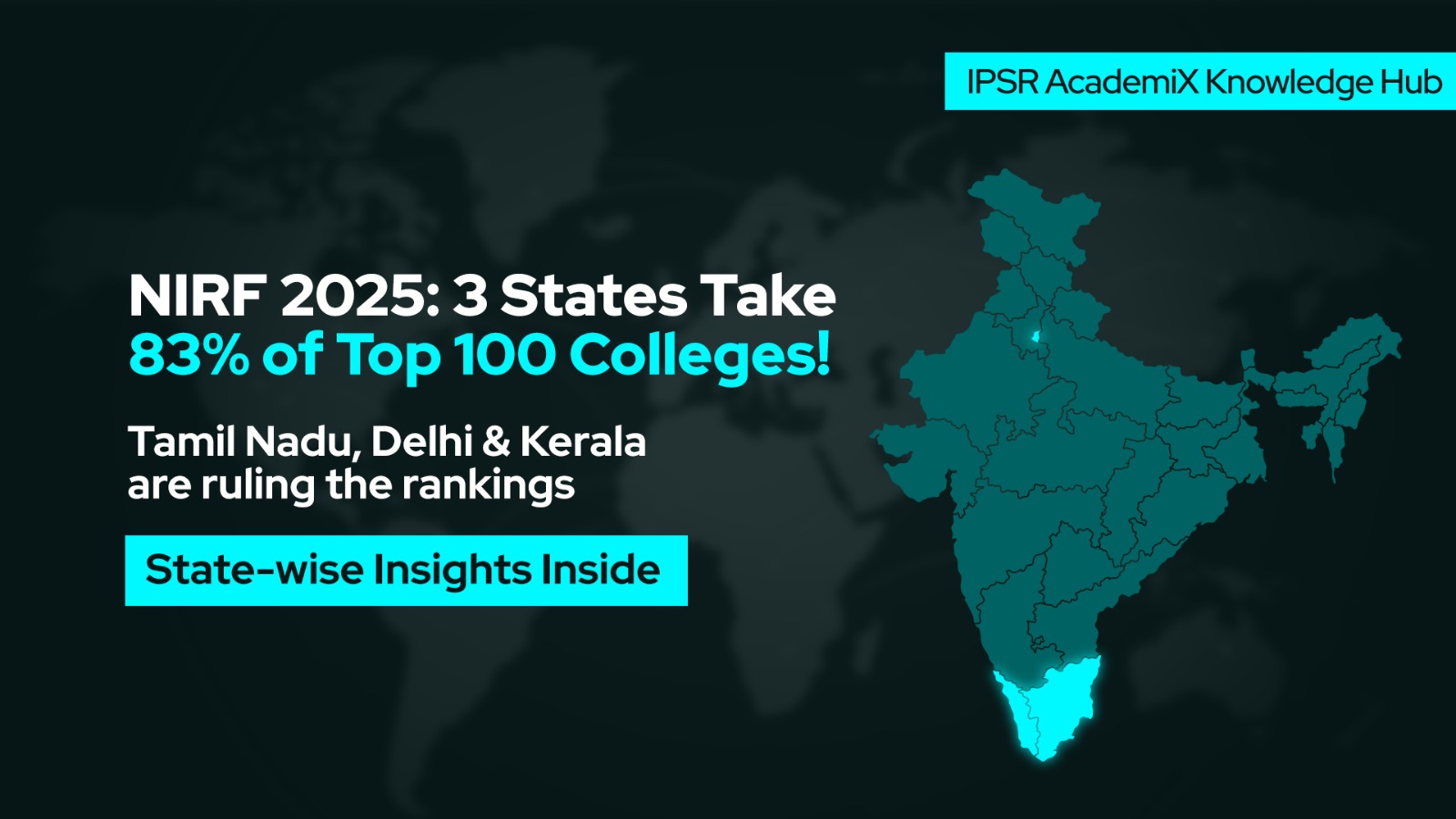
NIRF 2025 College Category
State-Wise Analysis, Growth Trends, and Insights
Sep-09-2025,
Articles
The National Institutional Ranking Framework (NIRF) 2025 has unveiled its much-awaited list of India’s Top 100 Colleges, reflecting the evolving landscape of undergraduate education in the country.
This year, the College Category witnessed record-breaking participation, showing how more states and institutions are embracing rankings to drive quality improvement.
With Tamil Nadu, Delhi, and Kerala accounting for 83% of the Top 100, the 2025 results highlight both pockets of excellence and areas needing urgent attention.
Participation Surge: 2024 vs. 2025
The NIRF framework saw remarkable growth in institutional participation in 2025:

- In 2025, the total number of applications rose by 30%, indicating that institutions are increasingly using NIRF as a quality benchmark.
- The College category alone saw 4,030 participating colleges, up from 3,542 in 2024, a year-on-year growth of 14%.
This surge reflects the growing importance of rankings in shaping institutional policies and attracting students.
Top 100 Distribution: State-Wise Breakdown
The table below shows how many colleges from each state made it into the Top 100, giving a clear picture of regional performance:
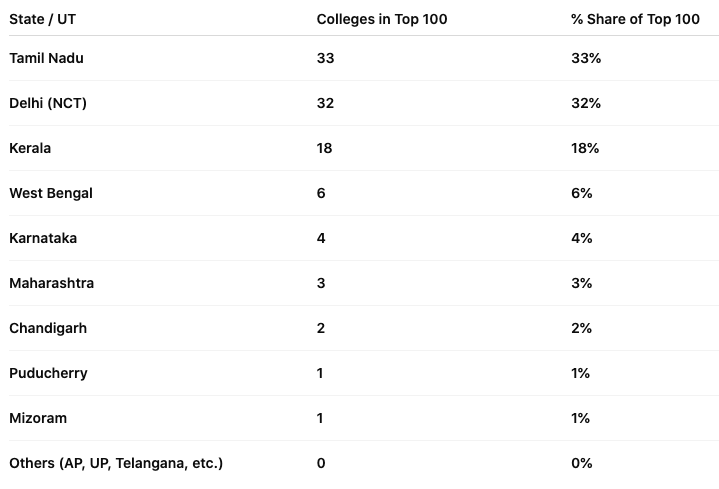
Key Points
- These nine states/UTs together account for 100% of the Top 100 colleges.
- Tamil Nadu + Delhi + Kerala alone make up a staggering 83%, leaving very limited representation for the rest of India.
Comparison with 2024
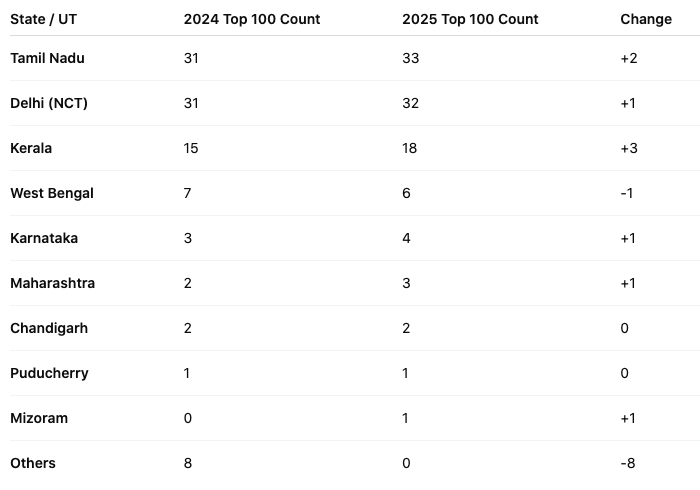
Trends
- Kerala showed the most significant improvement, adding three more colleges to the Top 100 compared to last year.
- Tamil Nadu and Delhi continue their steady rise.
- Several large states dropped out completely, widening the gap in regional performance.
Visualization: 2025 Top 100 Colleges by State
Chart – Percentage Share of Top 100
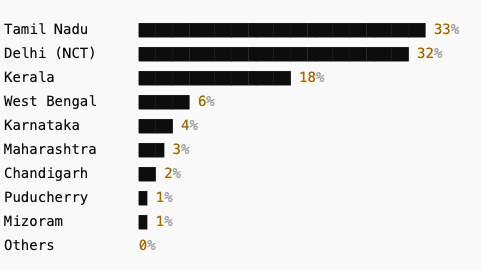
10 Key Takeaways and Insights
1. Tamil Nadu Continues to Dominate
- 33 colleges in the Top 100 – a new record high for the state.
- Strong mix of autonomous, aided, and private colleges like:
- Loyola College
- PSG College of Arts & Science
- Madras Christian College
- Reason for dominance: consistent state policies, robust quality assurance, and research initiatives.
2. Delhi Matches Tamil Nadu in Elite Presence
- Six of the Top 10 Colleges are Delhi University colleges, led by:
- Hindu College (#1)
- Miranda House (#2)
- St. Stephen’s (#3)
- Delhi’s growth from 31 to 32 colleges highlights sustained excellence.
3. Kerala Shows Remarkable Progress
- Kerala emerged as a surprise performer:
- Grew from 15 to 18 colleges in the Top 100.
- Strong institutions include:
- Rajagiri College (#12)
- Sacred Heart College, Thevara (#44)
- St. Thomas College, Thrissur (#53)
- Government College for Women, Thiruvananthapuram (#54)
- SB College, Changanassery (#56)
- Mar Ivanios College (#61)
- St. Joseph’s College Devagiri (#74)
- Maharaja’s College, Ernakulam (#75)
- Vimala College Thrissur (# 78)
- Farook College (#82)
- St.Joseph’s College, Irinjalakkuda (#83)
- CMS College, Kottayam (#86)
- Christ College, Thrissur (#87)
- Mar Athanasius College Kothamangalam (#92)
- Reflects the state’s focus on inclusive, decentralized education.
4. South India’s Unrivalled Strength
Combined representation of Tamil Nadu + Kerala + Karnataka + Puducherry:
- 56 colleges, accounting for 56% of the Top 100.
- South India continues to set national benchmarks for undergraduate education quality.
5. West Bengal Holds Steady but Needs Innovation
- 6 colleges in the Top 100, led by:
- Presidency College
- St. Xavier’s Kolkata
- Minimal growth compared to southern states.
6. Growth in Smaller States and UTs
- Mizoram entered the Top 100 for the first time with one college.
- Chandigarh retained both its colleges from last year.
- Shows that smaller regions can compete when they focus on quality.
7. Large States with Zero Representation
Shockingly, states like:
- Andhra Pradesh
- Uttar Pradesh
- Gujarat
- Rajasthan
had no colleges in the Top 100 in 2025.
This highlights a stark divide between certain regions and points to urgent policy intervention needs.
8. Competitive Surge Raises the Bar
- With 4,030 colleges participating, competition for the Top 100 was intense.
- Only 2.48% of participating colleges made it to the elite list.
- In 2024, this figure was 2.82%, meaning that while participation grew, standards became tougher.
9. National Gap is Widening
- Tamil Nadu, Delhi, and Kerala together dominate the list more than ever before.
- Other states risk falling further behind if they do not improve infrastructure and governance.
10. Grassroots Indicator of Higher Education Health
The College category reflects:
- Breadth and accessibility of higher education.
- It shows whether quality education is reaching the masses, not just top-tier professional institutions like IITs and IIMs.
State Performance Snapshot

Success Rate Insight:
- Delhi’s colleges are highly competitive, with nearly 6.5% of participants making the Top 100.
- Tamil Nadu and Kerala hover around 4–6%, reflecting robust quality.
- Other states average less than 1%, showing a significant quality gap.
Conclusion
The NIRF 2025 College Rankings highlight the polarized nature of India’s undergraduate education:
- Tamil Nadu and Delhi dominate, reflecting decades of investment and quality focus.
- Kerala’s upward trend is a positive sign of reform and progress.
- Several large states need urgent interventions to bridge the quality divide.
As participation continues to grow, the College category will remain a true barometer of how well higher education serves the grassroots level in India.
Final Thought:
By learning from leaders like Tamil Nadu, Delhi, and Kerala, lagging states can transform their higher education landscape, ensuring equitable access to quality education across the country.
Dr. Mendus Jacob, is the CEO of ipsr solutions limited and Professor & Director of the MCA Programme at Marian College, Kuttikkanam (Autonomous), with over 35 years of experience as an academician and entrepreneur. He is the former Director of School of Applicable Mathematics, M. G. University, Kerala. A Ph.D. in Operations Research with numerous publications, he has served on academic bodies of universities and autonomous institutions, produced Ph.D.s, and been a sought-after resource person for global conferences and faculty development programmes. An expert in NEP, Outcome Based Education, and Accreditation, he has mentored prestigious universities and trained over 40,000 faculty members nationwide on OBE implementation.







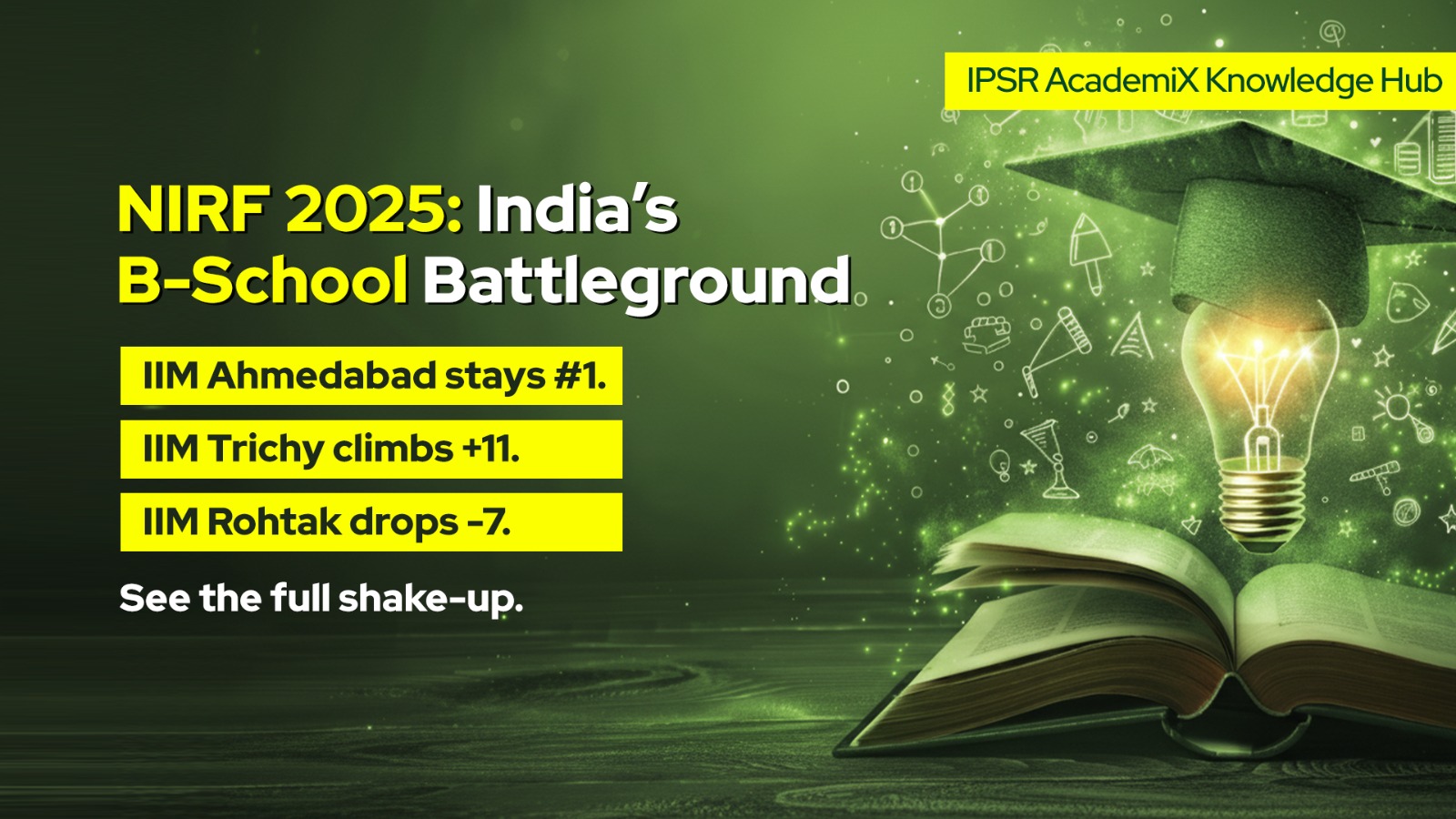
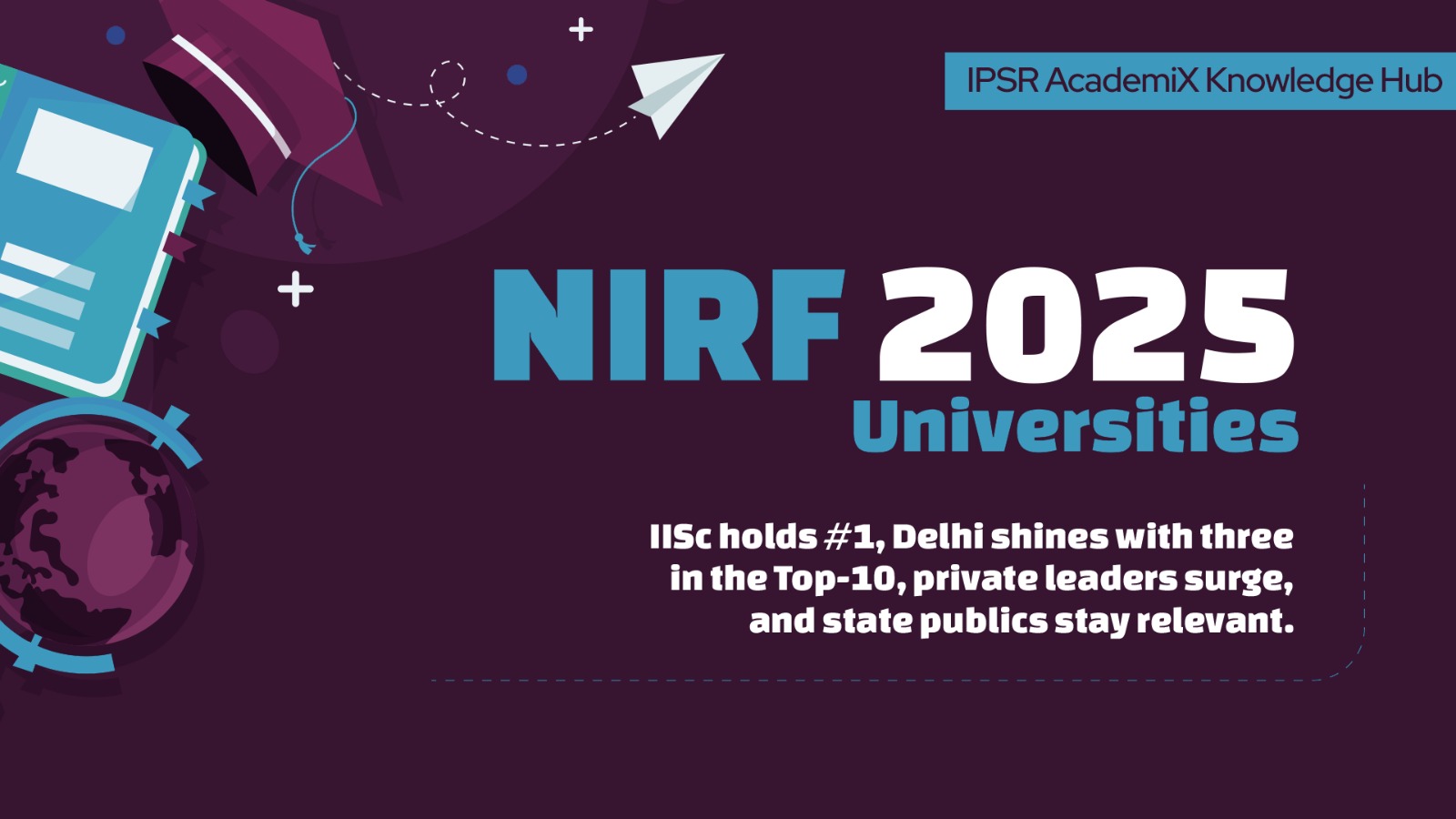
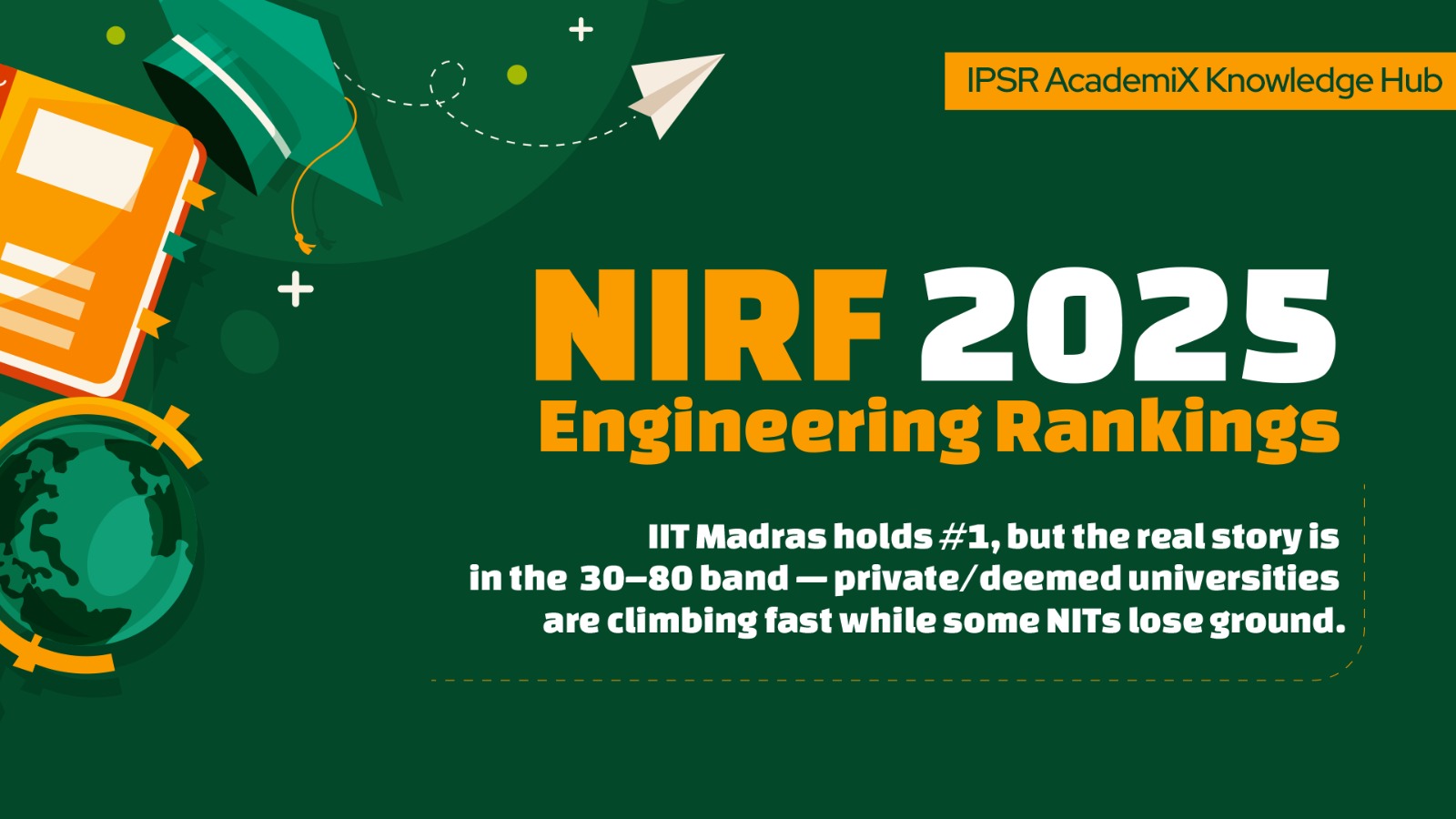

Leave A Comment